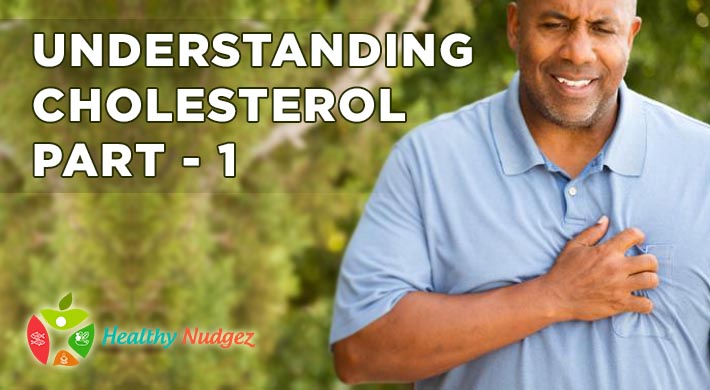Understanding Cholesterol Part I
What is hyper- Cholesterolemia, its Causes, Complications and How to Control Cholesterol Levels in Blood?
Most common question these days is how to lower total cholesterol and Low Density Lipo-Proteins (LDL cholesterol, bad cholesterol) levels and how to increase High density Lipo-Protein (HDL Cholesterol, good cholesterol) levels in blood?
So, what is cholesterol?
Cholesterol is a type of lipid (fat), which is synthesized by animal cells and is an essential component of animal cell membrane. It is also required for the synthesis of steroid hormones, bile and vitamin D.
Cholesterol is essential for all animal life and all animal cells are capable of synthesizing it. A normal human male weighing about 68 kgs is capable of synthesizing about 1 gm (1000mg) of cholesterol per day and his body has a store of 35 gm cholesterol. How much will be synthesized by the body is controlled by the levels of cholesterol and other fats in the body at any given point of time.
Although, a higher intake of cholesterol through food leads to a decreased production in the body cells, sometimes this process is disrupted due to many reasons and one of them and the most important is the presence of large quantities of Low density Lipo-proteins (LDL cholesterol) in the blood.
Types of Cholesterols in the human body:
Cholesterol travels through blood on proteins called Lipo-proteins (lipid carrying proteins). Two main types of proteins carry cholesterol in the body
- LDL (low density lipo-protein), sometimes also called “Bad Cholesterol”. It makes up for most of the cholesterol in the body and is a risk factor for heart disease and stroke.
- HDL (high density lipo-protein), also known as “Good Cholesterol”. This lipo-protein absorbs cholesterol from the intestines and carries them to the liver, where they are flushed out from the body as bile. High levels of HDL reduce the risk of heart disease and stroke.
How does the levels of Cholesterol increase in blood?
The cholesterol levels in blood may increase due to any of the following reasons:
- increased consumption of animal foods containing saturated fats and cholesterol such as red meats, organ meats, full cream milk, egg yolk, etc.
- increased consumption of foods rich in trans fats such as found in highly fried foods, cookies, cakes, patties, etc.
- increased overall consumption of fatty foods especially processed fats such as processed butter, processed cheese, fried savouries, chips, fried snacks, etc.
- increased consumption on total calories and increased consumption of simple unrefined carbohydrates, especially those high in fat also, such as fried sweets, cakes, pastries, fast foods, pastas, pizzas etc.
- Reabsorption of cholesterol from bile and fatty foods, if foods remain for long in the intestines as during constipation.
- Lack of physical activity, such as spending lot of time sitting, watching TV or computer, which is linked with lower levels of HDL cholesterol
- Smoking also lowers the level of HDL and increases the levels of LDL cholesterol.
- Genetic causes, some people may have a family history of hyper-cholestrolemia.
- Some medical conditions, such as renal disease, diabetes, obesity, hypo-thyroidism, poly-cystic ovarian syndrome and some inflammatory diseases such as rheumatoid arthritis, may also cause increase in blood cholesterol levels.
Complications caused by increased levels of cholesterol are heart disease and stroke. Due to increased cholesterol in blood, fatty deposits develop in the blood vessels and block them, making it difficult for enough blood to flow through the arteries. It therefore, becomes difficult for the blood to carry food and oxygen to important parts of the body such as heart and brain, causing heart attack or stroke.
How to treat or prevent Hyper-Cholesterolemia:
By living a healthy life one can keep blood cholesterol levels in the healthy range and also lower the risk of heart disease and stroke.
- Make healthy eating choices: Limit foods high in saturated fats from animal sources, trans fats and foods high in cholesterol.
- Choose foods high in fibre, low in all types of fats, sodium such as whole grains, fruits, vegetables, legumes and nuts, etc. Use vegetable oils such as sunflower, safflower, groundnut, mustard, rice bran and olive oil, etc.
- Maintain a healthy weight
- Get regular physical activity, a minimum of 30-40 minutes of aerobic exercise daily
- Quit smoking
- Limit alcohol
- Manage Stress, maintain proper sleep hygiene.
Learn more about healthy food choices, diet and nutrition and also to manage weight, from us. For more information visit www.healthynudgez.com, for consultations call at 9650180098, 9810181098.

